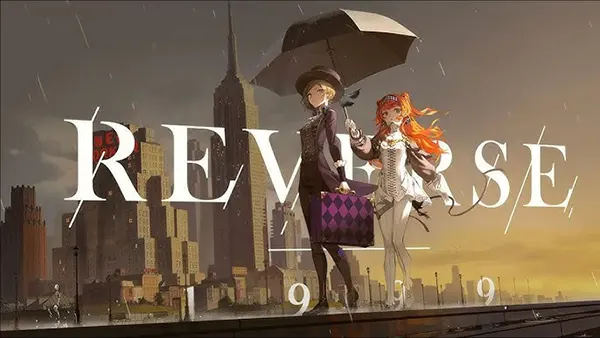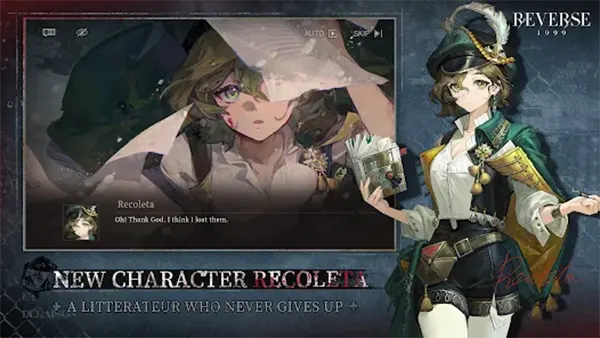
Reverse: 1999 is a visually rich and narratively immersive turn-based strategy game developed by Bluepoch. Released globally in late 2023, the game has continued to gain traction through 2024 and mid-2025, thanks to regular updates, compelling storytelling, and a unique time-traveling theme. Designed for both iOS and Android, it blends deep lore, tactical battles, and a cinematic presentation that appeals to fans of both strategy games and visual novels.
At the heart of Reverse: 1999 lies a traditional turn-based combat system that relies heavily on strategic card use. Players command a team of three characters, each equipped with a deck of skills represented as cards. These skills vary in strength, type, and synergy, requiring the player to think several steps ahead to maximise efficiency during battles.
What distinguishes the game from other gacha-based RPGs is its action sequencing, where combining matching cards upgrades the potency of the skills. This adds a layer of tactical depth that encourages experimentation and adaptation. Additionally, the elemental system introduces both weaknesses and resistances, adding further strategic weight to team-building decisions.
Resource management plays a crucial role as well, with players needing to balance experience gains, equipment upgrades, and character promotion. The meta-progression is fair and doesn’t excessively rely on monetisation, allowing even free-to-play users to stay competitive over time.
Unlike many mobile RPGs, Reverse: 1999 invests heavily in its narrative. Players follow the protagonist, Vertin, as she travels through fragmented timelines in pursuit of the mysterious Storm. Each chapter is presented with a voice-acted script and visual novel-style cutscenes, using a stylised art direction reminiscent of 1960s illustration styles.
Dialogue in the game is not just decorative but influences the emotional impact of scenes. There are philosophical undertones, commentary on identity and memory, and character studies that would be at home in a literary visual novel. This narrative weight has become one of the game’s signature strengths.
Moreover, localisation quality in multiple languages (including English, Japanese, and Korean) is commendable, with well-adapted text and accurate lip-syncing, which strengthens the storytelling and immerses players in the unique world setting.
Reverse: 1999 features an eclectic roster of characters that reflect various eras and cultural influences. From ancient sages to 20th-century poets, each character comes with their own backstory, voice actor, and thematic abilities that reinforce their identity within the game’s universe.
As of June 2025, over 70 playable characters have been introduced, with more added during bi-monthly events. Every character benefits from full voice acting in Chinese and English, ensuring emotional delivery during cutscenes and mission dialogue.
Design-wise, the characters stand out due to their watercolour-esque visual style, expressive animations, and fashionable yet historically inspired costumes. This attention to detail helps create a memorable and emotionally engaging cast that elevates the overall experience.
Character acquisition is done through a limited-time recruitment system, also known as banners. The gacha rates are consistent with industry norms: 80 pulls guarantee a 6-star unit, with pity carrying over between banners. Additionally, there’s a free selector system every few months that allows players to choose a powerful unit without spending.
Leveling, skill upgrading, and affinity boosts are accomplished through a mix of daily missions and campaign farming. The game provides ample resources for progression, especially during events, making it accessible even for those who don’t log in every day.
One notable aspect is the “Insight” system — a form of ascension that unlocks new passive traits and improves a character’s performance drastically. This mechanic rewards long-term investment and is essential for endgame content like the Wilderness and Phantom Cage.

Reverse: 1999 offers a variety of modes beyond the story campaign. Players can engage in limited-time events with exclusive rewards, challenge roguelike dungeons, or dive into character-focused side stories. Each mode comes with its own gameplay twist that refreshes the overall experience.
The Wilderness serves as the housing system where players can decorate their own space and gain passive bonuses. The game’s “Anomaly” zones also introduce time-limited strategic challenges that rotate every few weeks and test your roster depth and tactical skills.
As of mid-2025, live events remain a major highlight. Events like “Last Day of the New Era” and “Clock Tower Reverie” feature custom animations, exclusive skins, and lore expansions. These not only reward active players but also keep the in-game world evolving with fresh content every quarter.
Bluepoch has maintained an active development schedule, consistently listening to community feedback through Discord, Reddit, and Twitter. Patches and balancing changes arrive regularly, and developer letters outline long-term plans to ensure transparency and engagement.
The in-game anniversary events often include surveys, free currency, and rare items, contributing to the positive reception among the global audience. As of June 2025, the game holds a 4.6-star rating on both Google Play and the App Store, indicating sustained player satisfaction.
With global servers and scheduled crossovers with other IPs in the works, Reverse: 1999 has cemented its place among narrative-driven mobile RPGs. Its unique blend of strategy, story, and style ensures it remains one of the standout mobile titles well into 2025 and beyond.